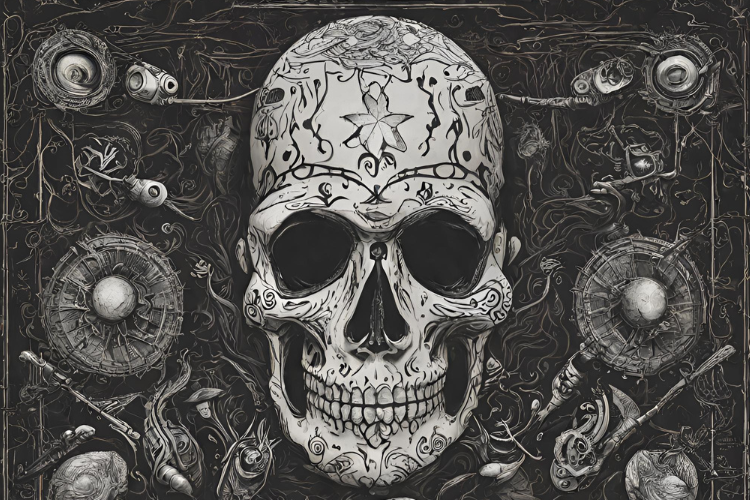Voodoo, also known as Vodou or Vodun, is a spiritual practice and religious belief system with roots in West Africa. It has spread to various parts of the world, particularly in Haiti, where it is practiced by a significant portion of the population. Within the realm of Voodoo, there is a distinct role played by voodoo doctors, also known as houngans (male) and mambos (female). These individuals are highly respected within the community for their ability to heal physical ailments and provide spiritual guidance.
Healing Practices of Voodoo Doctors
Voodoo doctors are believed to possess a deep understanding of the connection between the physical, emotional, and spiritual realms. They often use a combination of natural remedies, rituals, and spiritual practices to heal their patients. One of the key tools of voodoo doctors is the use of herbal medicine, which is believed to have powerful healing properties. These herbal remedies are often prepared in a specific way and administered to patients in conjunction with prayers and rituals.
In addition to herbal medicine, voodoo doctors may also perform spiritual rituals to cleanse and heal their patients. These rituals may involve singing, drumming, dancing, and the use of symbolic objects such as candles, incense, and sacred symbols. The goal of these rituals is to restore balance and harmony to the individual, both physically and spiritually.
Voodoo doctors are also known for their ability to communicate with the spirits. In voodoo, it is believed that spirits play a significant role in human affairs and can influence a person’s health and well-being. Voodoo doctors may communicate with these spirits through rituals such as divination, where they seek guidance and insight into a patient’s condition. By understanding the messages of the spirits, voodoo doctors can provide more effective treatment and healing for their patients.
Spiritual Guidance and Counseling
In addition to their role as healers, voodoo doctors also serve as spiritual guides and counselors within the community. They provide guidance on various aspects of life, including relationships, career choices, and personal development. Voodoo doctors are sought out for their wisdom and insight, as well as their ability to connect with the spiritual realm.
Voodoo doctors may offer advice and counsel based on their knowledge of voodoo principles and beliefs. They may use divination tools such as tarot cards, shells, or pendulums to gain insights into a person’s situation and provide guidance on the best course of action. Voodoo doctors may also offer prayers and rituals to help individuals overcome obstacles and challenges in their lives.
One of the key roles of voodoo doctors is to help individuals connect with their ancestral spirits. Ancestral spirits are believed to play a vital role in protecting and guiding their descendants. Voodoo doctors may conduct rituals to honor and communicate with these spirits, seeking their blessing and guidance on behalf of their clients. By fostering a connection with ancestral spirits, voodoo doctors help individuals feel supported and guided in their lives.
Community Leadership and Rituals
Voodoo doctors often play a crucial role in the leadership of their communities. They are respected figures who hold significant influence and authority. Voodoo doctors may lead ceremonies and rituals for the community, such as ceremonies to honor the spirits, celebrate important events, or seek guidance and protection for the community as a whole.
Voodoo doctors may also act as mediators and peacemakers within the community. They are called upon to resolve conflicts and disputes, offer advice on important decisions, and provide a sense of unity and solidarity among community members. Through their wisdom and spiritual guidance, voodoo doctors help maintain harmony and balance within the community.
Challenges Faced by Voodoo Doctors
Despite the important role they play in their communities, voodoo doctors often face challenges and misconceptions from the outside world. Voodoo has long been misunderstood and stigmatized, with many misconceptions about its practices and beliefs. Voodoo doctors may face discrimination and prejudice based on these misconceptions, which can make it difficult for them to practice their traditions openly.
In addition, voodoo doctors may also face challenges in accessing resources and training to further develop their skills. Many voodoo doctors rely on oral tradition and apprenticeships to learn their craft, which can make it challenging to pass on their knowledge to future generations. By addressing these challenges and misconceptions, voodoo doctors can continue to play a vital role in healing and spiritual guidance within their communities.
In conclusion, voodoo doctors play a crucial role in healing, spiritual guidance, and community leadership within the voodoo tradition. Through their deep understanding of the connection between the physical, emotional, and spiritual realms, voodoo doctors offer holistic healing and support to their patients. By serving as spiritual guides and counselors, voodoo doctors help individuals connect with their ancestral spirits and navigate life’s challenges with wisdom and insight. Despite facing challenges and misconceptions, voodoo doctors continue to play a vital role in preserving and practicing the rich traditions of voodoo.

